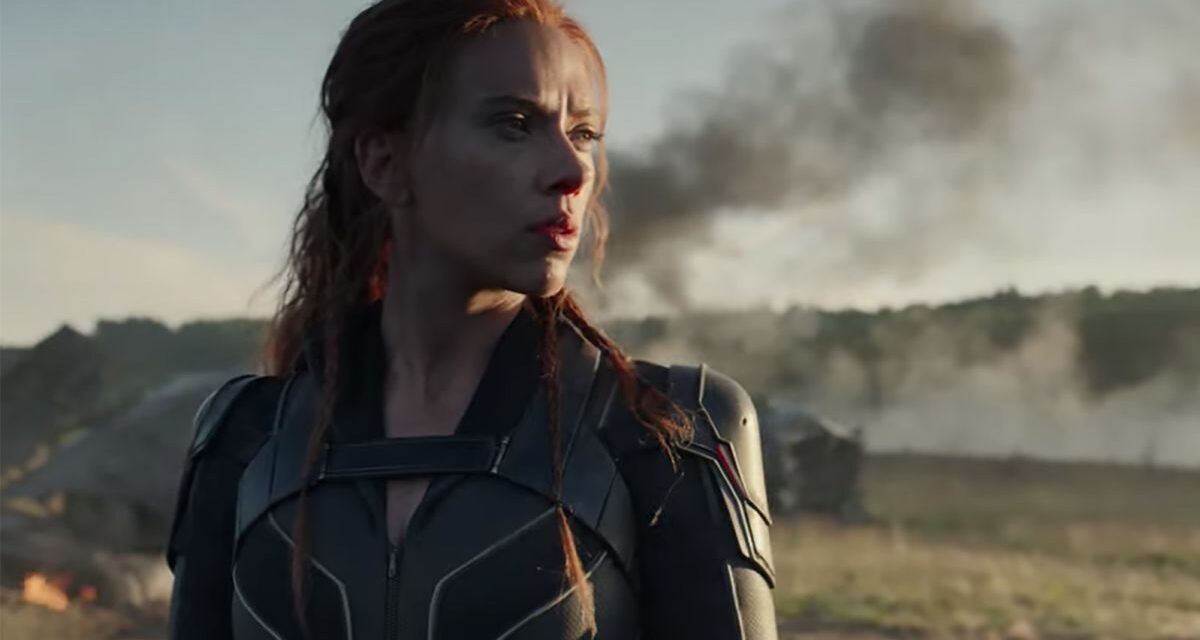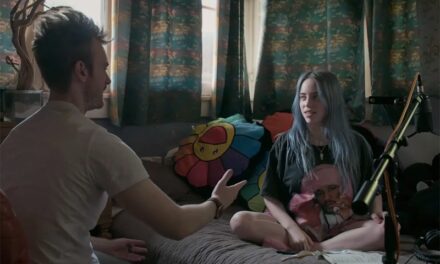2010’s Iron Man 2 was the introduction of Natasha Romanoff / Black Widow (Scarlett Johansson) into the MCU as a spy for S.H.I.E.L.D. From there, her character would be the first female of the Avengers, and movies such as Avengers: Age of Ultron would dig into her backstory further. While we somewhat learn about her Romanoff’s beginnings, it’s hard to invest more into that in ensemble movies. Audiences got to see her friendship with Hawkeye (Jeremy Renner), some hints at love, and how far she’s come when we reach Avengers: Endgame. Still, many were waiting for her own film for her character for her to have some independence. Thus, the long wait for Black Widow’s long-gestating solo film.
The MCU is currently on different pathways where all bets are off, with themes ranging from timelines and magic. Black Widow is very much a look back; both in where it falls in the MCU in story structure. The film follows a lot of the same patterns as earlier standalones such as Iron Man or Captain America: The First Avenger. However, there are certain things that strengthen it, where Marvel strives to learn from its mistakes. Black Widow happens immediately after the events of 2016’s Captain America: Civil War. Due to violating the Sokovia Accords, Natasha is a fugitive on the run. Because of this, this leads her back to the demons of her past. Much of what’s rooted in her evolution in becoming an Avenger is atoning for what she did as a KGB spy.
On the road back and meanwhile, staying out of sight, she goes back to the adopted family she once knew when she was younger. Yelena Belova (Florence Pugh) is a product of The Red Room Academy and a psuedo-sister to Natasha. She’s a highly trained killing machine who is laser-focused on the missions at hand. That’s until the key problem of the movie reveals itself and shakes everything she knows. There’s something sinister at the heart of the Black Widow program that Natasha and Yelena have to uncover.
Complete with their adoptive parents, Alexei Shostakov / Red Guardian (David Harbour) and Melina Vostokoff (Rachel Weisz), the movie begins with a flashback. They are presented as an All-American family until everybody’s aliases are found out, and they flee. A motif that has been present within Black Widow’s character is that family is not something you are born with. Much like how the Avengers become a family unit, the audience will get to see that with these characters.
Alexei is a Russian super-soldier who lives entrenched in his glory days. Melina is a scientist who works on research that she feels guilty when the ramifications present themselves. Alexei and Melina try to do their best as parental figures, even though that perception may be comically warped. Remember that they are spies. Much of the dialogue from David Harbour provides comic relief as he tries to be sympathetic, but is aloof at the same time. Natasha and Yelena’s relationship is symbiotic, as they bring different aspects of their personalities out of each other. Natasha got out into the world and Yelena is trying to learn how to be an actual person. Yelena provides a lot of quick-witted responses to things. Natasha tends to be laser-focused on the mission at hand.
Director Cate Shortland strikes a balance in making an action-packed spy movie with some family drama. Black Widow has plenty of adrenaline behind it, complete with car and motorcycle chases, fights, and explosions. Screenwriter Eric Pearson and writers Jac Schaeffer and Ned Benson try to find a balance between character progression and bombastic set pieces. Mostly, each character is able to inject their own personalities without things breaking momentum. There are a couple of points where the film tries to shift gears from hot to cold that may hinder it some.
For every hero, there has to be a villain. Black Widow has two; in particular. Dreykov (Ray Winstone) is the evil major hand behind The Red Room. Taskmaster is a Red Room mercenary that can mimic any fighting moves they see. It makes for some entertaining sequences as you see different heroes from the MCU emulated to a fine science. Drevkoy is a serviceable foil, especially for Natasha’s overall goal. He looks at the Widows as just collateral in his war chest and not living people. It bridges a theme of women taking back their power from men who seek to abuse it. Natasha confronts her past and Yelena sets a new future for herself. One criticism of early MCU villains is that they seem disposable. While Winstone tries to make the most of his screen time, Drevkov may ultimately fall into that category.
If you’ve seen Avengers: Endgame, watching the events of Black Widow may feel bittersweet. It took over ten years to get to a solo Black Widow film. If released where it falls in the MCU timeline, it would have an even bigger impact to witness how Natasha has grown. Marvel is about to go through a weird, time-bending metamorphosis with future projects. Black Widow serves as a good last bow to the character and a reminder to fans when things were a little more grounded.
Photo Credit: Disney/Marvel













